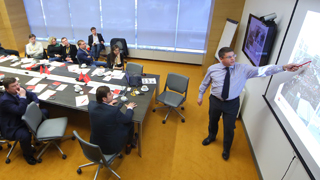
Sociālais dialogs
Sociālo dialogu var definēt kā sarunas, konsultācijas, kopīgu rīcību, diskusijas un informācijas apmaiņu, kurā piedalās darba devēji un darba ņēmēji. Labi funkcionējošs sociālais dialogs, kurā iesaistīti daudzi dažādu līmeņu dalībnieki, ir viens no galvenajiem darba apstākļu veidošanas līdzekļiem. Tas līdzsvaro darbinieku un darba devēju intereses un veicina gan ekonomikas konkurētspēju, gan sociālo kohēziju.
Nesen notikušajās ES līmeņa politiskajās debatēs uzsvērts, ka jo īpaši kopš 2008. gada krīzes izveidojušās jaunās debates par sociālo taisnīgumu, demokrātiju, darba kvalitāti un jauniem darba attiecību modeļiem ir likušas apšaubīt tradicionālos sociālo partneru attiecību veidus un sociālā dialoga sistēmas.
Trīsdesmit gadus pēc Eiropas sociālā dialoga vēsturiskajiem pirmsākumiem Val Duchesse pilī Briselē Komisija augsta līmeņa konferencē "Jauns sākums sociālajam dialogam", kura notika 2015. gada 5. martā un kurā piedalījās sociālo partneru organizācijas no visas Eiropas, ir paziņojusi par procesa atjaunošanu. Eiropas sociālais dialogs ir ES sociālās politikas instruments, kas tieši palīdz veidot ES darba tiesību aktus un politiku.
- Eiropas Komisijas konference: Jauns sākums sociālajam dialogam
- Eurofound bloga raksts: No ValDuchesse līdz Rīgai – kā atjaunot sociālo dialogu?
















